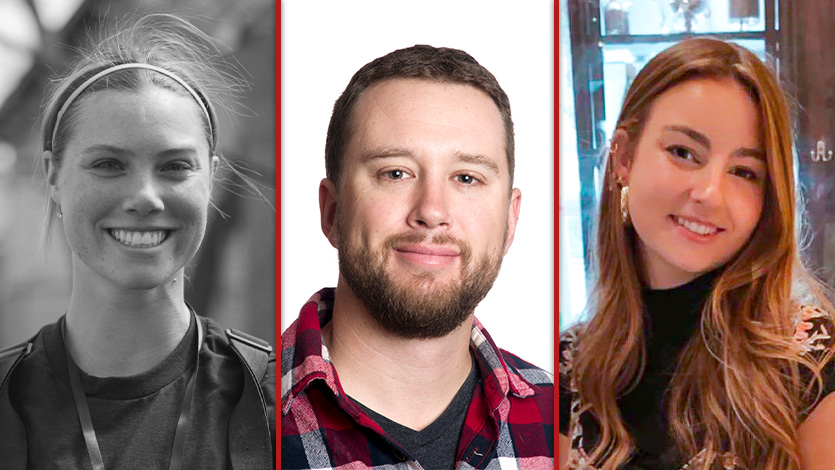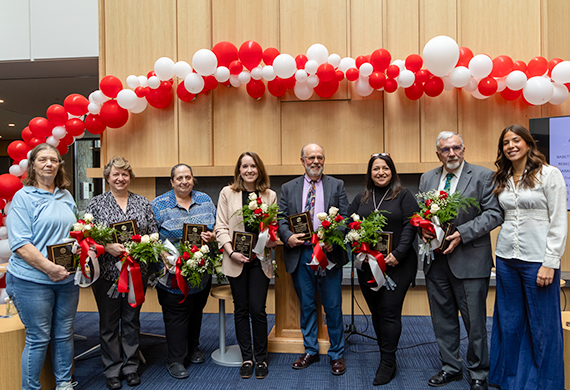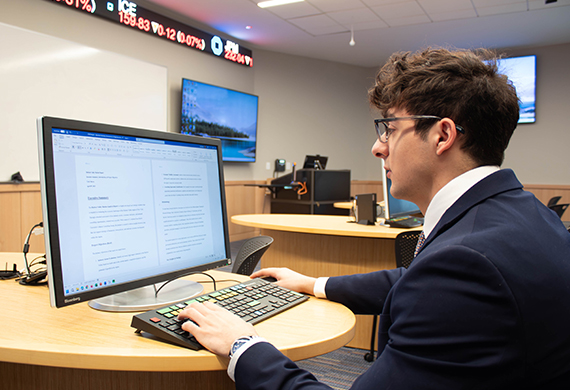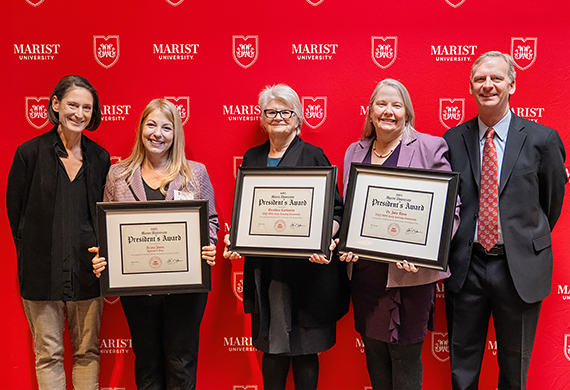School of Science team accepted into Prestigious Science Advocacy Program

October 13, 2022 – A team representing Marist’s School of Science has been accepted into a prestigious advocacy program that will provide an opportunity to train on a national level later this month. Scholars Transforming Through Research (STR) is a program of the Council for Undergraduate Research (CUR) that trains students and their mentors to communicate with government officials, funding agencies, and the media to leverage and promote undergraduate study. The group from Marist is led by Dr. Zion Klos, Assistant Professor of Environmental Science, and includes current student Carli Piretra ’23 and recent alumna Emma Butzler ’22.
STR is a nationally competitive professional development opportunity in which teams participate in a six-month program aimed at developing their communication and advocacy skills which will empower them to convey the power of the high-impact practices of undergraduate research, scholarship, and creative inquiry experience to diverse stakeholder groups.
“The interaction with elected officials and funding agencies makes these programs very competitive,” said Dr. Alicia Slater, Dean of the School of Science, “The acceptance of Dr. Klos and his team of undergraduate researchers into this inaugural program provides national recognition for their excellent work and for Marist College.”
Dr. Klos is an environmental Earth scientist who focuses on integrating the physical, ecological, and social sciences to help solve local to global issues around water and climate.
“The training in science communication this program provides our undergraduate students is really unparalleled,” said Dr. Zion Klos, “We will be helping these students learn how to bridge science and policy at the highest levels in our government.”
Piretra ’23 is an Environmental Science major with a minor in fashion merchandising and also is a teaching assistant and an officer for the Student Government Sustainability Committee. This summer she received a Cargill Marist School of Science grant to do independent research in Barcelona, Spain, which she says was a driver of her acceptance in to the STR program. Her research looked at how Barcelona’s garbage disposal methods affect the quantity of macroplastics and garbage in streams. She plans to compare the data collected in Spain to the data in Poughkeepsie in hopes of integrating the "zero waste" concept that is already integrated into Barcelona’s community.
“The program is going to be the perfect space for me to find inspiration for ways to effectively change policy,” said Piretra ’23. “Seeing the environmental sector through the lens of governmental officials is an essential skill to have and I am so thankful to have an inside look. I am excited to learn how to navigate the unfamiliar realm of politics.”
Butzler ’22 graduated from Marist in May and is currently attending North Carolina State University, pursuing a PhD in Geospatial Analytics. While at Marist, she was involved in a number of research projects, which included creating a proposal aimed to understand failing septic systems and excess nutrients in the Fall Kill Watershed, a project fully funded by the Hudson River Foundation.
“The STR program will once again allow me to collaborate with decision makers but this time at a larger level,” said Butzler ’22. “As I continue to pursue research here at NC State and collaborate with policy makers on Capitol Hill, I will take with me the experiences and community issues that I saw first-hand in the Hudson Valley and now here in Raleigh. I am very grateful that Marist has continued to invest in my education through conferences, travel and research.”
Later this month, accepted teams will engage at an in-person skill development, advocacy training, and networking event in Washington DC, participate in virtual skill development and discussions sessions throughout the year, and become part of CUR’s advocacy ambassadors to be called upon to meet with elected officials, and participate in writing op-eds and blog posts.



